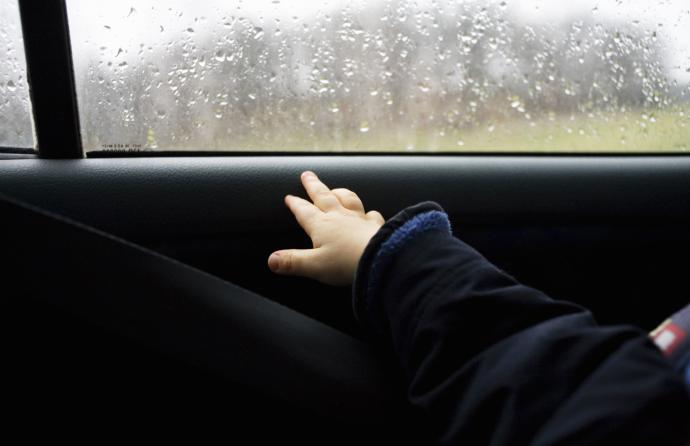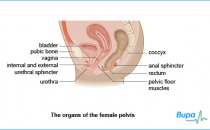Depression in children and young people

Depression is a condition in which people may have low mood, a loss of interest in everyday activities, feelings of low self-worth, a lack of energy and poor concentration, all of which last a long time. Depression in children and young people can often come back (recur) and continue into adulthood. It’s therefore important to treat the condition as early as possible.
About depression in children and young people
Symptoms of depression in children and young people
Complications of depression in children and young people
Causes of depression in children and young people
Diagnosis of depression in children and young people
Treatment of depression in children and young people
About depression in children and young people
Around one in 100 children are affected by depression before they reach puberty and three in every 100 teenagers are affected. Depression is twice as common in girls than in boys.
All children feel sad or miserable from time to time, but these feelings often pass. Depression can make your child feel sad or low for a long period of time and it can interfere with his or her life.
There are three levels of depression that are classified according to the symptoms your child has.o.
- Mild depression can cause your child to feel unhappy, but won’t stop him or her from leading a normal life. Your child may find everyday things difficult to do and less worthwhile. Simple lifestyle changes can help your child recover from mild depression.
- Moderate depression can have a significant impact on your child’s life. It can make him or her feel constantly miserable and low. Your child should visit a GP as changes in lifestyle alone are unlikely to help.
- Severe depression can cause your child to have constant negative thoughts and feel like he or she isn't able to cope. It’s important that your child visits a doctor immediately as he or she may have suicidal thoughts.
Around one in ten children who have depression recover within three months. After a year, half of all children with depression get better.
Symptoms of depression in children and young people
The symptoms of depression can vary from person to person. Some of the most common symptoms include:
- constantly having a low mood and being irritable
- losing interest in everyday activities
- feeling guilty or bad, being self-critical and self-blaming
- feeling hopeless or helpless
- crying a lot
- feeling unhappy for most of the day
- lacking self-esteem and not wanting to see friends or family
- problems sleeping
- tiredness and lack of energy
- difficulty concentrating
- loss of confidence
- changes in appetite
- frequent aches and pains
- having thoughts about death or suicide
It can sometimes be difficult to tell if a young person has symptoms of depression or is showing signs of normal adolescent development. Generally, children are said to have depression if they have symptoms for two weeks or longer.
These symptoms may be caused by problems other than depression. If your child has any of these symptoms, see your GP for advice.
Complications of depression in children and young people
Severe depression is associated with self-harm and suicide, so it’s important that you look out for changes in your child’s mood.
Causes of depression in children and young people
Depression in children and young people is normally caused by a number of factors, including:
- family problems or parents splitting up
- death of a relative, friend or someone close
- abuse
- bullying
- neglect
- long-term health problems or serious illness
- problems at school, such as low grades
- a major life change such as moving house
- friendship or boyfriend/girlfriend relationship problems
- alcohol or drug use
Depression is thought to run in families and a child with a close relative who has depression is more likely to get depression themselves. It’s also linked to changes in how your child’s brain works. Chemical changes are thought to happen in the part of your child’s brain that controls mood and this causes the symptoms of depression.
If your child has had depression, his or her risk of having depression again within five years is higher than a child who hasn’t had depression. However, most children and young people who have depression will go on to lead a normal adult life.
Diagnosis of depression in children and young people
It’s important to seek medical help early if you think your child has depression. Your child’s GP is a good first point of contact. He or she may suggest that your child goes to a child and adolescent mental health service for help. Your child may do a number of psychological and medical tests to see if any other medical condition is causing your child’s symptoms.
Many young people who have depression get better by themselves, but if your child has severe depression your GP may refer him or her to see a psychiatrist, a doctor who specialises in mental health problems, or a clinical psychologist who can talk with your child about his or her problems
Treatment of depression in children and young people
There are a number of treatments available for depression. Your doctor will be able to advise you which type of treatment is most suitable for your child.
Self-help
If your child has mild depression, there are a number of things he or she can do to help. For example, regular exercise, such as walking, running, swimming or cycling can help your child to feel better. Your child’s doctor may advise him or her to follow an exercise programme. It’s also important that your child eats a healthy, well balanced diet.
Providing support to your child is also very important. For example, you could try talking to your child about his or her problems and give some reassurance that you will help him or her to get better.
Talking therapies
Your child’s doctor may advise that he or she has a talking therapy. However, the type of talking therapy your child has will depend on its availability, his or her preferences, and what is most suitable.
Counselling involves your child talking to a therapist about his or her problems. In these sessions, the counsellor won’t offer advice or treatment, but will ask your child questions to help resolve his or her worries. Counsellors can sometimes help by working with you and your child’s school.
Cognitive behavioural therapy (CBT) can help your child to change his or her behaviour and negative thoughts and feelings. Your child may be able to have cognitive behavioural therapy individually or in a group with other people the same age. Your child’s doctor will be able to advise you about what is most suitable.
Interpersonal therapy involves your child talking with a therapist about any relationship problems he or she may have with friends, family or people at school. Your child’s therapist may be able to help your child to solve or manage his or her problems.
Family therapy is a type of treatment that involves you and your child working together. You will meet with a therapist and your child will talk about any problems he or she is having. It’s important that you and any other family members who are involved with your child go to the sessions together.
Medicines
Antidepressant medication will only be prescribed to your child if he or she has severe depression, or if his or her symptoms don’t go away. Your child’s doctor may advise that he or she takes an antidepressant called fluoxetine (Prozac) as well as having a talking therapy.
Your child will be monitored weekly for the first four weeks of treatment and then regularly after. Your child’s doctor will give you and your child information about any possible side-effects of the medicine and how long the treatment should last.
If your child doesn’t feel better after taking fluoxetine, then he or she may be prescribed a different antidepressant such as sertraline or citalopram, but this is rare. Always ask your doctor for advice and read the patient information leaflet that comes with the medicine.
Your child will need to take the antidepressant medication for six months after he or she feels better.
Hospital treatment
Most children and young people who have depression get better without needing hospital treatment. However, if your child has suicidal thoughts or his or her doctor is concerned about self-harm, he or she may need to go into hospital. If this happens, your child’s doctor will be able to give you and your child more information and advice.
Complementary therapies
St John’s wort is often used by adults as an alternative to antidepressants. However, children shouldn’t use St John’s wort for the treatment of depression as the safety of the herbal remedy is unknown in children.
Published by Bupa's Health Information Team, April 2011.
This section contains answers to common questions about this topic. Questions have been suggested by health professionals, website feedback and requests via email.
My child has depression. What can I do to help?
Can my child have a reaction to fluoxetine?
When I revise for my exams I get stressed and it can make me feel low. What can I do to relax?
My child has depression. What can I do to help?
Answer
As a parent it can be difficult if your child has depression, but there are a number of things you can do to help. It may be beneficial to both you and your child if you are involved in his or her treatment.
Explanation
It’s common for people with depression to become withdrawn from friends and family. But if your child is feeling low, it’s important that you are able to provide support and encourage him or her to seek medical help.
It’s also important to be sympathetic and caring for your child. Try to reassure him or her that you will help to improve the situation and listen to his or her problems. This will give you an idea of what you and your child need to do, or change, to help.
You may find that caring for your child who has depression makes you feel a bit low. It’s important that you speak to other people who are in the same situation as you and if you can, try to share your thoughts and feelings with other members of your family.
If you need further information about depression, your GP can give you advice. He or she may be able to recommend ways of self-help or a support group.
Can my child have a reaction to fluoxetine?
Answer
Yes, some children can get side-effects from taking the antidepressant medication fluoxetine (Prozac).
Explanation
If your child is taking fluoxetine, he or she may have some digestive problems such as nausea and vomiting. Some children may have other side-effects such as anorexia and weight loss, hives and muscle pain.
Other, less common side-effects of fluoxetine may include nervousness, anxiety, dizziness, headaches and difficulty sleeping.
Fluoxetine is also associated with a small risk of self-harm and suicidal thoughts.
A very rare side-effect of fluoxetine is anaphylaxis, or anaphylactic shock. This is a potentially fatal allergic reaction that affects the whole of your body, causing swelling, loss of consciousness, low blood pressure and breathing problems. If your child develops any of these symptoms, you must seek emergency help immediately.
If your child is taking fluoxetine and has any unwanted side-effects, speak to his or her doctor for more advice and information.do fluoxetina y tiene algún efecto secundario no deseado, hable con su médico para más información y recomendaciones.
When I revise for my exams I get stressed and it can make me feel low. What can I do to relax?
Answer
It’s very common for people to feel stressed when revising for exams, but there are a number of things you can do to help yourself relax.
Explanation
If you’re stressed about your exams and it’s making you feel a bit low, try some of the following relaxation techniques to help yourself feel better.
For example, when you feel yourself getting stressed during revision, start by sitting or lying down in a comfortable position. Then place one hand on your stomach to see how quickly you’re breathing. Leave one hand on your stomach and put the other on your upper chest. Take a deep breath in and count steadily. Breathe out slowly and for a little longer than you inhaled (for about five seconds). Repeat the process until you feel relaxed.
Or, you could try an alternative technique. First, make sure that you’re sitting or lying in a comfortable position. Then close your eyes and concentrate on breathing slowly. Feel your body relax and allow the chair or floor to support your weight. Locate areas of tension in your body and relax each part of your body from head to toe. Once you have completed this routine, you should do some light stretching and take deep breaths.
Doing exercise regularly, eating healthily, and having fun with your friends and family can also help to reduce stress.
Further information
Royal College of Psychiatrists [Colegio Real de Psiquiatras].
020 7235 2351
www.rcpsych.ac.uk
Mind
0845 766 0163
www.mind.org.uk
Sources
- Depression in children. Clinical Knowledge Summaries. www.cks.nhs.uk, published January 2009
- Depression in children and young people. National Institute for Health and Clinical Excellence (NICE), September 2005, www.nice.org.uk
- Williams SB, O'Connor EA, Eder M, et al. Screening for child and adolescent depression in primary care settings: a systematic evidence review for the US Preventive Services Task Force. Pediatrics 2009; 123(4):e716–35. doi:10.1542/peds.2008-2415
- Understanding depression. Mind. www.mind.org.uk, published 2010
- Mental health and growing up. Royal College of Psychiatrists. www.rcpsych.ac.uk, published December 2009
- Depression in children. Rethink. www.rethink.org, published 8 July 2010
- Joint Formulary Committee. British National Formulary. 60th ed. London: British Medical Association and Royal Pharmaceutical Society of Great Britain; 2011
- Tsapakis EM. Efficacy of antidepressants in juvenile depression: Meta-analysis. The British Journal of Psychiatry 2008; 193:10–17. doi: 10.1192/bjp.bp.106.031088
- How to cope with exam stress. Mind. www.mind.org.uk, published 2010
















